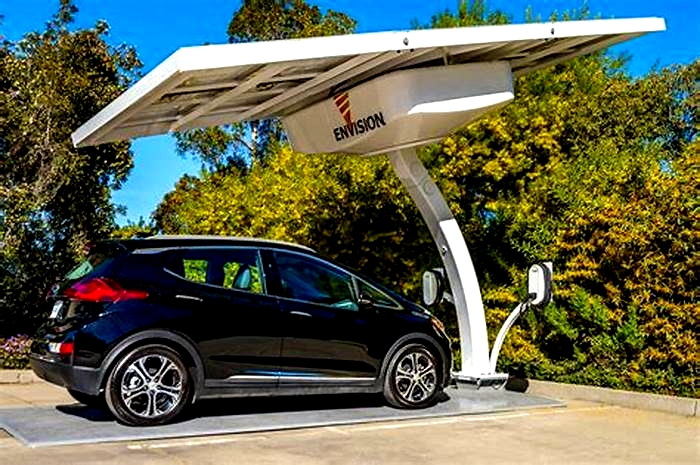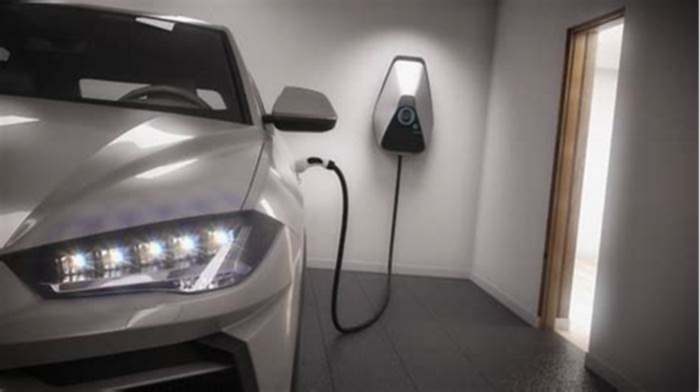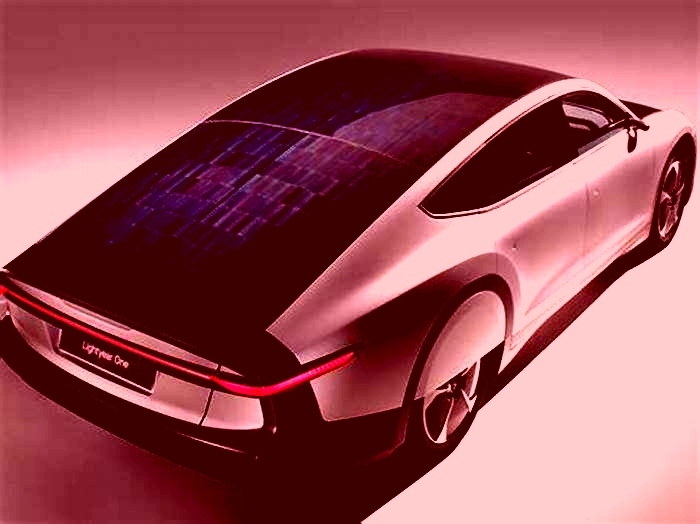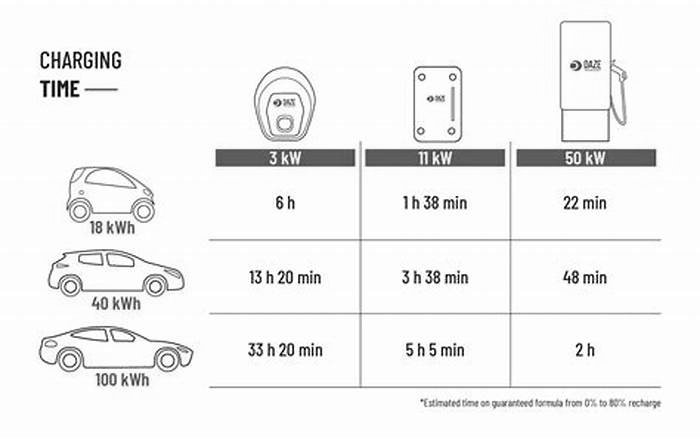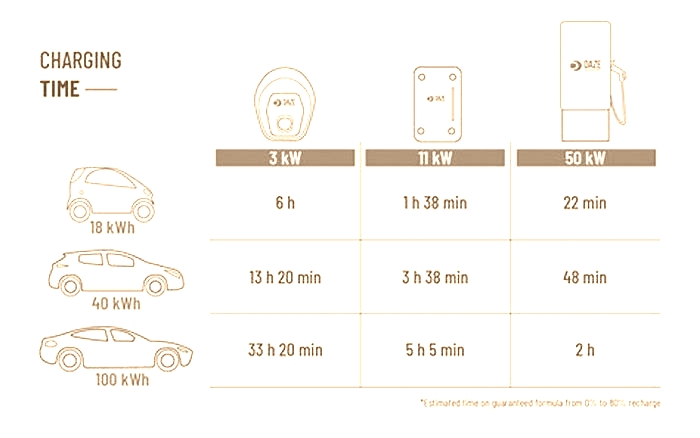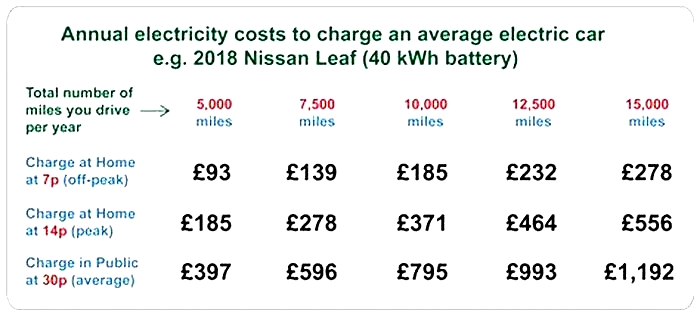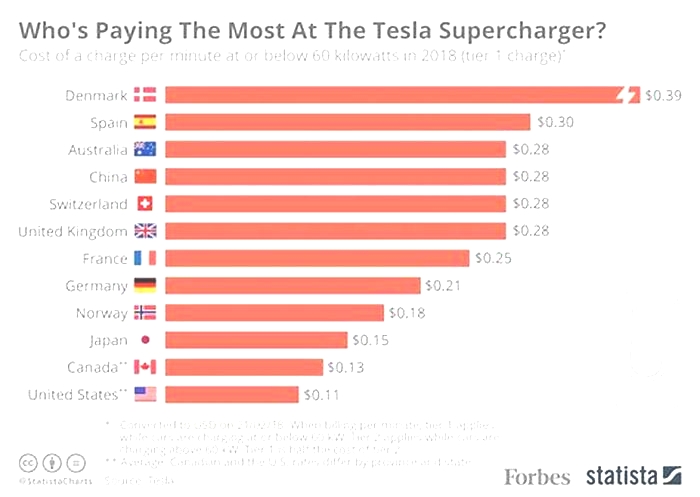Can You Charge Your Electric Vehicle with Solar Panels at Home
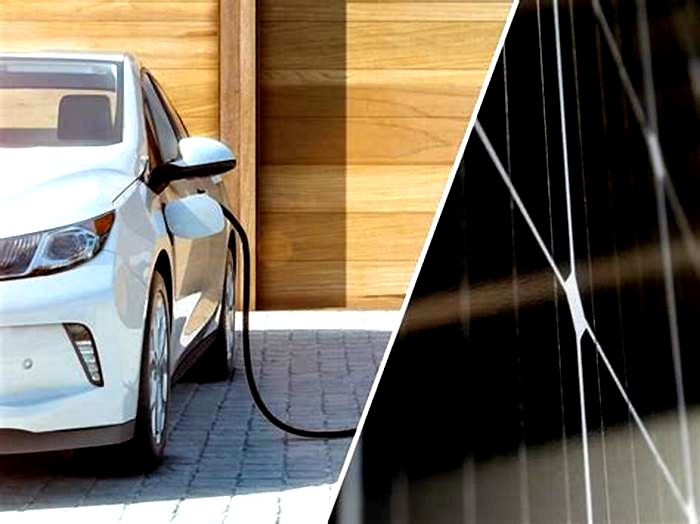
EV Charging with Solar
If you are an electric vehicle (EV) owner or in the market for one, you may have already considered the advantages of utilizing solar panels to charge your EV. By doing so, you can reduce both your electricity costs and the impact that your vehicle has on the environment.
While solar panels can effectively charge your electric vehicle, it's important to consider certain factors. This article will explore how solar panels work, the benefits of charging an electric car with solar panels, and the key considerations you should keep in mind.

Superior-Quality EV Charger Manufacturer
High-speed, reliable, safe EV chargers
OEM or white label options
Speedy order fulfillment
Comprehensive warranty and support

Understanding Solar Energy and Solar Panels
Using solar panels to power an electric vehicle can magnify the benefits of both. Before looking at how to charge an EV with solar, it is useful to understand how solar power systems work.
Solar energy refers to the radiant light and heat emitted by the sun, which can be captured and converted into solar power using photovoltaic (PV) cells.
These cells are made from semiconductor materials, such as silicon, and are arranged in solar panels installed on the rooftops of buildings and in large ground-mounted farms.
As sunlight hits a PV cell, it loosens electrons so that they can flow through the cell and produce electricity. The cells are made up of positively and negatively charged semiconductors that create an electric field, which drives the electrons toward the conductive metal plates lining the cell.
The amount of electricity produced by each cell is determined by the flow of this energy current. Solar cells can generate energy even on cloudy days, although they produce more power in direct sunlight.
The electricity generated by solar panels is in the form of direct current (DC), but most buildings use alternating current (AC). To convert the DC to AC, the electric current is directed through wires to an inverter.
The inverter converts the electricity from DC to AC and sends it to an electrical panel, also known as a breaker box, for distribution to buildings to power electrical devices.
Any unused electricity is sent to the electricity grid through the utility meter, which measures the flow of electricity from the grid to the property and vice versa.
Can You Charge Your Electric Vehicle with Solar Energy?
You can connect a solar PV panel system with an inverter to a regular EV charger, to charge the vehicles battery directly from solar power.
However, the amount of power a PV system generates depends on the time of year and the weather. On cloudy days or during winter when the days are shorter, you may need to supplement the power from the PV system with electricity from the grid to charge your EV to the level you require.
Even partially charging an EV with solar is a sustainable and cost-effective option, as it consumes fewer fossil fuels and requires less power from the grid.
Larger EV batteries typically need more PV panels to supply enough power for charging, so if you are looking to install a PV system specifically for charging your car, you should consult a professional to ensure you install the right system for your needs.
Benefits of Charging an EV with Solar at Home
Using a solar EV charger powered by a household PV system can save you time and money.
While EVs produce fewer carbon emissions than diesel or gasoline-fueled cars when on the road, charging the battery using electricity from coal-fired plants still produces emissions indirectly.
EV charging with solar further reduces their carbon footprint. A typical home PV installation can save around one ton of carbon per year, according to an estimate by the UK Energy Saving Trust.
Once it is installed, the lifespan of a well-maintained PV system is at least 25-30 years, providing a long-term solution to reducing your energy bills and the cost of EV charging.
Solar power systems typically work out cheaper over the long term than buying electricity from the power grid via a utility. Using an EV solar charger saves on fuel costs and gives you more control over your budget than driving a car fueled by gasoline or diesel, which is subject to fluctuating prices at the pump.
With a home solar power system, you also have the convenience of charging your EV at home at any time of day or night, without having to drive to a public charging station.
How to Charge Your EV with Solar
There are a few different options for using solar power to charge an EV.
- Install a home solar PV system and connect a Level 1 or 2 EV charger to run off your home electricity supply.
- Install a solar thermal system, which uses sunlight to heat water or air and can then heat the EV battery.
- Connect an EV charger to your home solar installation directly.
- If you need to charge your vehicle away from home, you can still charge it with solar energy by using a solar-powered public EV charging station. These stations are typically located in public places like gas stations and parking lots, providing convenient access for drivers who do not have access to a home solar EV charging station.
The Efficiency of EV Charging with Solar Panels
The charging efficiency of a typical electric vehicle battery depends on the ambient temperature, battery temperature, charge rate, length of the charging cable length, and the efficiency of the EVs power conversion system from AC to DC. When charging a battery from a solar EV charger, there are additional factors that come into play.
Power Output of the Solar Panels
Standard residential rooftop solar panels typically produce around 250-400 watts per hour, while the average domestic PV system produces 1-4 kilowatts (kW). Each kW of rooftop solar capacity can produce around 4 kWh per day or 1,500 kilowatt hours (kWh) per year, depending on factors such as the location of the panels, season, and daily weather conditions.
To fully charge an EV with a 40 kWh battery, an average home PV system that produces an average of 1-4 kW of electricity will require an additional 3.1 kW system or 8-12 panels. This is based on an average vehicle traveling 14,000 miles per year, according to the US Federal Highway Administration. The average EV has a driving range of around three miles per kWh, so it will require around 4,666kWh of electricity.
How Long Does It Take to Charge an EV with Solar?
There are several factors that affect how long it takes to charge an EV with solar car charging stations. These include:
- the brand, make, and model of the vehicle
- the brand, level, and type of the charger
- the charging efficiency of the vehicle
- the size of the battery
- the battery level at the time of charging
- the power generated by the PV system
As the average home PV system can generate 1-4kW of electricity, it can fully charge an EV with a 40kWh battery in around eight hours.
A Level 1 home EV charging station typically charges at a maximum of 1.9kW, adding around five miles of driving range per hour, while a Level 2 charger can typically charge at a maximum of 19.2kW, adding around 25 miles of driving range per hour.
What to Consider Before Installing Solar Panels for Electric Car Charging
Before installing solar panels for electric car charging, there are several factors to consider. One important consideration is the size of your EV battery, which can range from 40kWh for a Nissan Leaf to 100 kWh for a Tesla Model S or Model X.
You will need to determine the number of solar panels you will need to power your EV charger to calculate the installation cost accordingly. If you already have a home solar PV system, you might need to add more panels to accommodate the increased electricity usage.
There are a few other factors you will also need to consider:
- How long it takes to receive approval to install new solar panels and how this fits with your EV charging needs;
- Whether you have enough rooftop space to install the solar panels you need;
- The cost of buying and installing a home charging system;
- Whether you also want to install a battery storage system to store excess solar energy and charge your vehicle overnight;
- Whether you can receive government subsidies for installing solar panels, battery storage, or an EV charger.
In addition to usage, you should also consider how much estimated daily sunlight your PV system will receive and local weather patterns.
Keep in mind that you will not often need to charge from a completely dead battery to full capacity. If you only drive a few miles a day, a few hours of charging will likely be enough to provide the range you need to run your EV.
Can Public EV Charging Stations Be Powered by Solar?
While some public charging infrastructures connected to the power grid use electricity that is generated from fossil fuels, there are public chargers that use electricity supplied by solar generation companies or on-site solar panels to provide clean energy for EVs.
Some charging stations have installed large solar canopies to shade vehicles from the elements while they charge. Solar canopies can also feed the clean electricity they generate back to the grid, further reducing their carbon footprint.
Public solar chargers also have the advantage of providing off-grid solutions to remote areas that may not be well-connected to the power grid, increasing EV adoption and promoting sustainable transportation options.
The Future of EVs & Solar Energy
The low-carbon energy transition is accelerating, driven by government policies on carbon emissions reduction and consumer preferences for environmental sustainability. Renewable energy, particularly solar power, is growing rapidly as a source of sustainable electricity generation that also reduces household energy bills and provides independence from centralized power grids.
Distributed solar power installations, such as household rooftop PV systems and EV charging stations with solar panels, have increased in popularity and grown exponentially in recent years. Increased availability of solar charging for electric vehicles paves the way for widespread adoption, providing homes and businesses with a clean source of electricity and low-cost charging.
Battery storage systems can maximize the benefits of PV systems by supplying clean electricity around the clock, allowing EV owners to charge their vehicles overnight.
Additionally, public solar-powered EV charging stations can provide off-grid solutions to meet the needs of drivers in different regions and communities, even when power grids are knocked offline by extreme weather and other conditions.
The future of solar power generation and storage is bright and the rise in drivers making the switch to EVs is increasing solar demand more than ever. Solar EV charging provides an affordable solution for environmentally conscious consumers to meet their needs for clean electricity.
FAQs
Why don't electric cars have solar panels?
That's because cars do not have enough space on the roof for installing solar panels to generate the amount of electricity needed to charge the battery.
How long does it take to charge an electric car with solar panels?
Charging an EV with solar panels can take eight hours or more, depending on the model of the vehicle, the size of the battery, the amount of direct sunlight, and the capacity of the solar PV system.
Can I charge my EV with portable solar panels?
Yes, it's possible to charge an electric vehicle with portable solar panels. However, it's important to keep in mind that portable solar panels may not generate enough power for a full charge, and charging times may be longer compared to using a home or public charging station.
It's crucial to ensure that the portable solar panels are compatible with your EV and that the charging process is safe and efficient.
Can You Use Solar Panels To Charge An Electric Car?
Most recent EV charger models are solar compatible
Between 812 solar panels should be enough to fully power an electric vehicle
Solar panels are rarely used to fully power an EV, but they can top up its charge
After paying the installation costs of an electric charger, youre also faced with the price of the electricity to charge your car.
You can reduce this with solar panels, leaving you with a smaller carbon footprint and more money in the bank.
But there are several caveats to consider before you start using solar panels to charge your EV, such as the fact that not all EV chargers are solar compatible.
Well explain how to charge an EV with solar panels in this article. Well also look at costs, which companies offer solar compatible EV chargers, and the pros and cons of solar EV charging.
Before you can hook up solar panels to an EV, youll need to get a home EV charger. To speed up the buying process, try using our easy-to-use quote tool. Once weve received your details, well pass them on to our suppliers, wholl be in touch with their best prices.
Where are you looking to install your charging point?
Submit
Whats on this page?
Can solar panels charge an electric car?
Yes, you can use solar panels to charge your electric car. However, most homeowners wont be able to fully charge their EVs using solar energy.
Thats because theres a mismatch between when solar panels produce electricity, and when most EV owners charge their cars.
Solar panels produce electricity when the sun is out, during the day. But thats also when most EV owners are using their cars. At night, when solar panels dont produce electricity, is when most people charge their cars.
Furthermore, most EV chargers only start using solar-generated energy after the house used all the solar electricity it needs.
This means that, in most cases, the EV charger wont get a chance to charge the car because the house will have consumed all of the solar energy first.
There are, however, some EV chargers that can take in solar-generated electricity first, ahead of the house. These EV charging stations also tend to be smart chargers, meaning the homeowner just needs to use an app to choose whether they send electricity from the panels to their house or car.
Youll also need to make sure that your solar panel system can generate enough power to charge your car which brings us to our next section.
How many solar panels are needed to charge an electric car?
According to Octopus Energy, a solar panel system with around 812 panels will usually be able to power an electric vehicle.
But thats if youre using the solar panels solely to charge your car, and not to power your house.
If you want to top up an EV using excess solar energy from panels that power your house, you might not be able to fully charge your car using solar energy.
You also need to make sure you have enough solar power leftover in order to do this. So the more solar electricity you use for your home, they less likely it is that youll be able to charge your EV with solar energy.
And remember, the larger the EV battery, the more solar panels youll typically need to charge it. So its important to factor in whether the size of your solar panel system will be able to generate enough power to charge your EV. Its worth discussing this with a solar panel installer before you crack on with the charger installation.
The number of panels youll need to be able to charge an EV will also depend on:
- Your local climate The panels will be able to generate more energy in a particularly sunny area, compared to somewhere that gets a lot of cloud and rain
- The solar panel efficiency rating In theory, the more efficient the solar panel, the more electricity itll be able to produce
Did you know that cars with integrated solar panels are already a thing? Head to our page to find out more.
How long does it take to charge an electric car with solar panels?
It can take anywhere between 30 minutes and 12 hours to charge an electric car with solar panels. But again, most people wont be able to completely charge an EV only using solar energy.
The exact amount of time it takes to charge an EV with solar will depend on the size of the battery the bigger the battery, the longer itll take to replenish and the speed of the charging point.
Although you cant install rapid chargers at home, there are some pretty speedy options out there for homeowners, generally going up to 7 kilowatts (kW).
Want to compare this to charging an EV without solar panels? Check out our page on How Long Does It Take To Charge An Electric Vehicle?
Whats the cost of solar panels to charge an electric car?
If you want to buy solar panels to charge an electric car, you should expect to pay roughly 7,860 for 10 solar panels, taking up 20m of roof space.
But bear in mind that the cost of solar panels tends to fluctuate, depending on the type of solar panels you choose, the installer you go for, and your location.
10 solar panels is also the number required to power the average UK home. So depending on what you choose to prioritise, your car or your home, you can use this energy to power both just not at the same time.
In terms of savings, however, its more cost efficient to power your home with electricity from your solar panels than it is to charge your car with it.
Plus, as well as saving on bills, solar panels can also make your home more attractive. 69% of people are likely or very likely to buy or rent a property with solar panels, according to our latest National Home Energy Survey.
Want to learn more about how much solar panels cost up front, as well as how much they can save you? Head to our Solar Panels Cost page.
Should you get a solar battery as well?
If you want to charge your EV with solar panels during the day, then you dont have to get a solar battery. However if you are charging your EV at night, then a battery is a necessity.
If youre only usually home in the evenings, for example, charging your EV without a solar battery will be challenging, as your solar panels wont be able to harness any energy without sunlight.
A solar battery will store surplus electricity generated in the daytime, which can then be used to charge an EV in the evenings.
You can find out everything you need to know about solar batteries on our page: A Beginners Guide to Solar Batteries.
Which companies offer solar EV chargers?
There are currently three main companies on the market that supply solar EV chargers: Indra, MyEnergi, and Hypervolt.
Indra
Cost: from 949 including installation (available at up to 75% off with the Office for Zero Emission Vehicles (OZEV) grant)Charging speed: 7.4 kW
Indra claims that its Smart PRO charger is the smartest electric vehicle charger available on the market.
This 7.4 kW home charger can be connected via Wi-Fi, 4G, or ethernet connection, making it easier for users to charge their EVs with solar power.
On top of this, the Smart PRO charger includes all the latest safety features, which means users can avoid cluttering their homes with fuses and cables.
One of the best things about this charging station is that you can pair it with the Indra app, which allows users to create a regular charging schedule and use a boost function for immediate charging. You even have the option to charge in units of miles, kWh, or money.
MyEnergi
Cost: from 779 including installation (get up to 75% off with the OZEV grant)Charging speed: 7 kW
MyEnergi was the first company to develop a solar EV charger of its kind, revolutionising the EV industry.
Its Zappi charger can be paired with the MyEnergi app to set timers and utilise economy tariffs, and make sure the user is getting the best possible deal. Users can also try the boost function through the app, which triggers the fast charging mode.
The unit comes with three charging modes:
- Eco charging The eco mode minimises the use of grid power, either taking advantage of cheaper rates overnight or using 100% solar energy
- Eco charging+ This overlaps a lot with the eco-charging mode, but also has a setting that continuously adjusts the charging power, in response to changes in solar generation or power consumption in the home
- Fast charging Fast mode charges the vehicle at maximum power, meaning users can have a fully charged car in a last-minute rush
Hypervolt
Cost: from 660 (get up to 75% with the OZEV grant). Installation cost variableCharging speed: 7 kW
The Hypervolt Home 3.0 charger allows users to track their energy consumption, which can help them understand which times of the day its best to consume solar energy.
To make sure the chargers dont become outdated quickly, Hypervolt units automatically upgrade to the latest software.
And to make the user experience even better, Hypervolt chargers can be used via voice control, through Amazon Alexa. Users can check the charging status and schedule charging by simply asking the device.
Pros and cons of solar EV charging
Pros
- Free or reduced cost of travel
- Smaller carbon footprint
- Reduced independence from the grid
- Increased property value
Cons
- Expensive upfront cost
- Have to charge EV during the day
- Performance is affected by weather
- Solar panels arent suitable for all roof types
Pros
Free or reduced cost of travel
According to NimbleFins, motorists spend an average of 1,288 a year running a petrol car and 1,795 running a diesel car. With solar panels, you can avoid these travel fees.
The sun is a free energy source. So, if you fully power your EV with solar electricity, you can charge your electric vehicle for free. For most people, this could reduce their living expenses by hundreds and even thousands of pounds a year, depending on their average mileage.
How does this compare to charging an EV with energy from the grid? Refuelling with a home charger typically costs drivers 727.25 a year, which is still a hefty lump of money they can avoid with a set of solar panels.
This also means that you would break even on the panels in around 7.5 years with at least another 18 years of profit.
Smaller carbon footprint
Transport accounts for around a quarter of global carbon emissions and Brits are continuing to contribute to this. The average person in the UK drives 7,400 miles per year, emitting 1.6 tonnes of CO2 per year the equivalent of three flights from London to New York.
By charging your EV with renewable energy, you can rest assured you wont be contributing to this pile-on of emissions.
Unlike gas, oil, or coal, solar panels dont release any harmful emissions whilst running, and EVs dont release any tailpipe emissions. This means you get to enjoy cheap energy whilst reducing your carbon footprint. Its a win-win!
Reduced independence from the grid
Instead of relying on electricity from the grid to power your EV, you can generate the electricity yourself. Not only will this mean you can reduce your carbon footprint since about 40% of the energy mix still comes from gas but it means you can avoid rising energy costs too.
Increased property value
Charging your car with solar panels will benefit your wallet today and save you money in the long run. And when it comes to selling your property, having an EV charger could actually make you money.
After comparing 1,000 house prices across 50 UK areas, one study revealed that homes with an electric charge point installed typically sell for 13% more than the local average.
Cons
Expensive upfront cost
If you dont already have a set of solar panels on your property, youll have to invest a significant sum of money to be able to charge your EV with solar energy.
A typical 3-4 kWp solar PV system usually enough to charge an EV will set you back around 7,860. Youll also need to set aside roughly 1,000 for the EV charger itself. And if you plan on charging your car at night, youll need a solar battery, costing around 4,500.
Solar panels arent as expensive as they used to be, but theyre still a little out of reach for some homeowners.
Have to charge your EV during the day
Unless you have a solar battery, youll have to charge your EV during the day, when solar panels generate electricity.
This doesnt suit most peoples lifestyles, especially ones who use their car to commute. And solar batteries are an expensive purchase.
Performance is affected by weather
Lets get one thing straight: solar panels dont need to be in direct sunlight to produce electricity. But it certainly helps.
Light cloud cover will typically lead to a power output loss of about 23.8%, which isnt too bad, but if you live in an area with particularly heavy cloud cover, it could reduce your panels output by 66.8%, according to the latest scientific research.
Solar panels arent suitable for all roof types
Solar panels work best when theyre installed on a south-facing roof at a 35-degree angle. This means they have the best chance of absorbing as much sunlight as possible.
Bear in mind that if you dont have a south-facing roof, your solar panels might not be able to generate enough electricity to power your EV. You can learn more on our page: Whats The Best Angle and Direction for Solar Panels?
Youll also want to make sure that your solar panels are installed out of the shade, as this can also reduce how much electricity theyre able to generate.
Next steps
There you go everything you need to know about charging your EV with solar panels. If you already have solar panels set up on your property, its a no-brainer. You just need to make sure your charging unit is compatible with solar panels and away you go.
If youre not able to install solar panels onto your roof, dont worry. Charging your car through the grid is still an affordable and low-carbon way of getting around. And a good way to do this is by investing in a home charging station.
Once youre ready to buy yourself a charging station, fill out this short form to speed up the process and find the best match. Once weve received your details, well pass them on to our suppliers, wholl be in touch with prices for you to compare.
EV charging with solar: FAQs
The most powerful home EV chargers are 22 kW. For context, standard home EV chargers are 7 kW, whilst most public chargers are around 50 kW.
However, to use one a 22 kW charger, your home needs to have a three-phase electricity supply. This is usually reserved for commercial buildings, and it essentially means the property can accommodate a large amount of electricity.
Most residential properties only have a single-phase supply, but you can apply for a three-phase supply by contacting your local Distribution Network Operator.
The average EV owner does not need to charge their car everyday. EVs only need to be charged once every few days if they are averaging around 50 miles a day.
Owners with very high mileage might need to charge their EV daily, but this wont be the case for most people.
You dont typically need planning permission to install an EV charger, as long as its being installed on your property.
However, there are some exceptions. For example, if the EV charger is being installed on the grounds of a listed building, or within two metres from a highway, then planning permission is required

